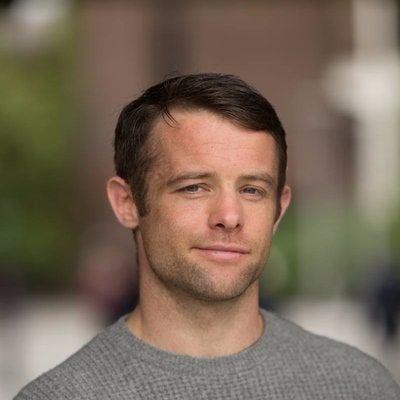How did you end up in Amsterdam?
“I came to the University of Groningen right after I finished my PhD at the University of Limerick, where I’m from. I really loved it and loved the Netherlands, so I was absolutely delighted to get the contract at the VU. I’ve met some colleagues in person and others I’ve met online. So far, people have been really supportive and welcoming. Of course I’ve met some students as well and that has been very nice. They seemed really engaged and interested, so that was an encouraging start.”
What is your research centered around?
“It’s predominantly focused on the security architecture of the African Union. I wrote my PhD thesis on the institutional design of the African Peace and Security Architecture. I've written a little bit on the transformation of the Organisation of African Unity. More recently, I’m trying to establish a parallel focus on the intersection of sports and international relations.
Where do sports and international relations meet?
“Traditionally, it is not really thought of as something that is relevant to international relations. But, certainly in the last decade, the geopolitical implications of the hosting of sports events has become obvious. Sportswashing - so the hosting of an event or even the associating of a politician with a sports personality or a particular sport to try and launder their popularity -
has really long historical roots as well. You could go back to the ‘rumble in the jungle’, the Mohammed Ali fight, which was, in many ways, just a vehicle for the advancement of Mobutu Sese Seko’s reputation in the Congo. You could bring it right up to today, Khabib Nurmagomedov, one of the greatest UFC fighters, who after lots of his big fights, has visited Vladimir Putin’s living room for tea and coffee. It’s something you see a lot in sports.
It’s really interesting, but not what I’ve done my research on though! I have an article on review for the last couple of months with the journal of Political Geography. It is about the migration patterns of Pacific Islander rugby players. It is something I find really interesting because I’ve played rugby for over 25 years, with a lot of Pacific Islanders, which is really a ubiquitous feature of rugby, more so in the international and professional levels. Eight of the top ten international teams in the world have Pacific Islanders playing for them, but none of those teams are Pacific Island nations.”
Which factors prevent these nations from developing a strong league?
“The article I wrote mainly focuses on governance practices of the game within particular national environments, but the international governance of the game as well. Things like particular rules that favour the wealthier Western (also NZ and AUS) countries in terms of voting power and revenue streams. Several French clubs have recruitment centres in Fiji. In the article, I am not saying that Fijian players should be prevented from such opportunities. Rather, I am trying to point out that there is a very large complex of push and pull factors that favor these people leaving. In turn, this prevents the development of a professional league within these countries. It deprives them of the opportunity to earn within their own countries and all these other benefits that come with having a professional league. There’s many industries built around rugby in wealthier nations, but it’s still an amateur sport in the three countries that arguably give the most to the game.”
Why should your colleagues in International Relations pay more attention to this topic?
“I suppose because sport is more of a site for the generation of inequality than what is commonly thought of. It is very easy to paint professional sport as something that is just pursued by millionaires that is very hard to feel sympathy for. It depends on what you call professional sport. There are many people who operate at the fringes of it and they have dependents. The amount of remittances the Pacific Islanders send home every year is actually a somewhat significant amount of the GDP of their countries.
It isn't something that a lot of people would initially think of that has significance for discussions about inequality, but I think it is quite relevant to it. It’s not just about earning, but all of these mini economies and mini industries build up around professional sports. So it's something we should care about, if the rules and regulations that are in place are making it so that it is not possible for these mini economies to build up around them, in places that could really do with it.”
